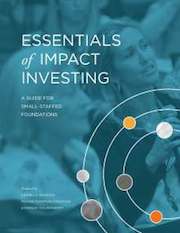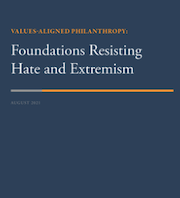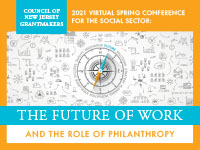Site Search
- resource provided by the Forum Network Knowledgebase.
Search Tip: Search with " " to find exact matches.

Seeking to increase their philanthropic impact, many engaged foundations are turning to impact investing. The reason is clear: The field and practice of impact investing have matured—structures are in place, best practices have emerged, and opportunities have multiplied—enabling more foundations to use this powerful tool. Yet entering unfamiliar terrain can be intimidating, and foundations with few or no staff face unique challenges even as they enjoy unique opportunities.
Essentials of Impact Investing: A Guide for Small-Staffed Foundations addresses those challenges and highlights those opportunities. The guide demystifies the process of designing and implementing an effective impact investing strategy, offering advice, tools, and real-world examples of impact investing by foundations with few or no staff.
Foundations are systems. They have their own cultures and related assumptions, norms, standards, and practices. All of these personal, social, and structural factors affect our ability to learn.
This tool is to help foundations take stock of their learning needs and opportunities with a dispassionate (evaluative) look at themselves as systems and how people work within them.
The tool is based on the work of systems theorist Donella Meadows. Her work resonates because it recognizes both systemic constraints and possible leverage points for addressing them. Meadows identifies a series of leverage points for changing a system, ordered from least to most powerful. We adapted her work to show how each lever can reinforce learning in an organization or system.
Use the tool to examine the list of 12 leverage points, ordered in terms of their power for shifting a system to support learning, from weakest (1) to strongest (12). Higher leverage points produce stronger, broader, more durable change.
According to Meadows, we often are disappointed in the results of systems change efforts because we tend to tweak the least powerful levers in the system — such as skill building or the flow of resources or information. We find this can be true with learning in philanthropy, where many foundations support learning with tools and training alone.
Which leverage points are you currently using to support learning in philanthropy? Where else can you push to make that support stronger?

In late 2020, the Council on Foundations (the Council) launched the Values-Aligned Philanthropy project to continue to build on their previous efforts within the philanthropic sector to respond to growing concern about the issue of funding hate and extremism. The Council took this step recognizing that while there is significant work being done by grantmakers and social sector leaders across the country to prevent hate funding, there has not been a comprehensive analysis of what has been done and who is doing what from the perspective of philanthropy. The Council believes that mapping the eco-system will provide a baseline for identifying gaps, best practices, and next steps to addressing this problem. Research and writing for the project have been provided by Roey Thorpe, an independent consultant, with guidance from Council staff.
The Future of Work and the Role of Philanthropy

Dates: Wednesday, May 19 and Thursday, May 20
Time: 2:00 to 5:00 p.m.
One of the most valuable learning and networking events for the social sector in the state, CNJG’s 2021 Virtual Spring Conference considered the role of philanthropy in shaping how, where, and why we work.
The coronavirus pandemic has impacted and propelled the future of work in ways we couldn’t have imagined. But even before the pandemic - the automation of jobs, the gig economy, the ongoing need for reskilling and retraining, changing demographics, green careers, lack of job security and more – has been setting the stage for novel ways of working. The Spring Conference explored this new, accelerated work paradigm, it’s profound impact on New Jersey’s industries, workers and communities, and the implications for grantmakers and their nonprofit partners.
This timely and important event brought together national and local thought leaders, experts and stakeholders to share what the social sector can do to ensure a better future for New Jersey’s workforce. Attendees engaged in candid, visionary conversations around equitable labor standards and professional practices, the changing, post-pandemic workplace, strategies to fill gaps in skills, education, and opportunity, the effects of new federal job policies on workers, and much more.
Thank you for joining the Council of New Jersey Grantmakers for an exploration about what lies ahead as we prepare for and address pressing and unprecedented changes in the world of work.
Only people who registered for the Conference will be able to access WHOVA. For assistance or additional information, please contact Anna D’Elia, Manager of Programs and Learning.
